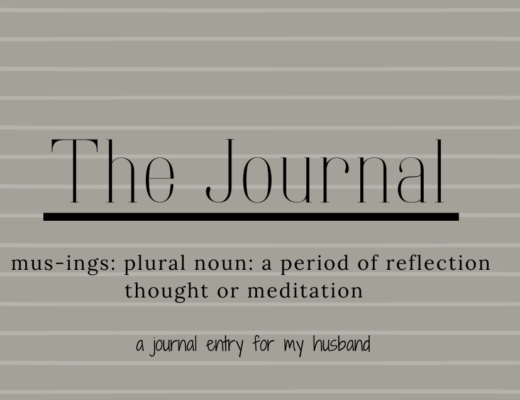“The greatest wealth is health…Virgil, Our Mindfull Life
We talk a lot about our exterior selves. Maintaining a healthy appearance. A slim or somewhat slim body. Wearing our sunscreen. Having an awareness of our posture. Standing up straight, shoulders back, stomach in, and having a bounce in our step. All these, combined with a dash of style, are the recipe for making a youthful, healthy impression. When we look healthy, we feel healthy.
What about our interior landscape? How healthy and youthful is it? Most of us are aware of all the excellent nutritional information available. There is so much information that it can get confusing when discussing carbohydrates, protein, and fat, along with defining good and bad carbs and how they affect our bodies.
FYI…Carbohydrates team up with proteins and fats and become macronutrients. These nutrients are crucial to our bodies’ general health and well-being. Nutrients can also affect cognition, mental, and emotional health as well. The body’s required vitamins and minerals are formed when protein, fat, and carbs are digested and become the macronutrients that generate energy, hormones, and enzymes. They help support the renewal of nerves, the skeletal structure, and blood components to maintain a balance with the immune system. It gives us pause for thought about what we’re eating.

Not all carbs are created equal. The two major groups are simple carbs and complex carbs. Carbohydrates are made up of sugar molecule chains, and this chain is where their structures part ways. The body breaks down and converts the sugar molecules into glucose, which it uses for energy. And the definition of good carbs and bad carbs resides in the breakdown of the sugar molecule chain.
Simple carbs…the bad boys. It’s all in the chain, and this carb comes up short in forming sugar molecules. This short chain includes sugar, honey, and most other sweeteners. They also come up short in dairy products, fruit, fruit juices, and highly processed foods. Simple carbs are easy to digest and are quickly absorbed, which can cause blood glucose levels to spike. And what does that mean…Repeated spikes can cause heart, kidney, and nerve problems similar to neuropathy. On top of this, they are largely devoid of nutrients, which adds to their bad-boy carb rep.
Complex Carbs…the good guys. We’re back to the chain gang again. This good guy carb has a long chain. This results in a slower rise in blood glucose, meaning there are no spikes that can be detrimental to other organs. This long chain results in slower digestion, which keeps blood sugar at a healthy level. For our good guy carbs, stock up on vegetables, leafy greens, nuts, seeds, whole grains, legumes, and fruit. Complex carbs are a primary source of numerous vitamins and minerals that our bodies depend on and flourish when treated with a healthy diet.
A good rule of thumb with carbs is…Keep it fresh, and stay as close as you can to the natural state of food. The closer to Mother Earth, the healthier. Keep the simple carbs, the bad boys, in a jar as an occasional sweet treat. Try to limit processed foods to a minimum. Read up on the bad boy carbs to know what to avoid when shopping for food. Keep it fresh, and don’t overcook the veggies.
The Gut-Brain Axis


While looking at our interior health, let’s look at the science of the Gut-Brain Axis. This refers to the bidirectional communication between the nervous system/the brain, and the gastrointestinal system/the gut. This complex interaction of neural, hormonal, and immunological pathways allows the gut and brain to influence each other’s functions. This axis plays a crucial role in maintaining the physiological processes. This includes some heavy hitters – digestion, mood regulation, immune responses, and cognitive functions.
The Axis communication between the brain and the gut is more than complex. The research is groundbreaking. They are revealing the science-fiction-sounding connection between the gut and the brain! It is surprising how many people move through life with a nervous or irritable stomach. The associated discomforts range from bloating, pain, altered bowel habits, and a lifelong limitation on what food can be consumed. I’ve watched a close friend for years go through “hell” with her gut issues. It is a life-altering health issue that, until recently, was under-researched.
Research has shown that the gut-brain axis can significantly influence the development and exacerbation of the above symptoms. Here’s how
Open Lines of Communication… The gut is densely packed with neurons, forming what’s known as the Enteric Nervous System – ENS. This “second brain” in the gut can operate – simi independently from the central nervous system. The matchmaker in this axis communique is the Vagus Nerve. Stress and emotions, the dynamic duo, stimulate the ENS, which leads to gut motility, sensitivity, and secretion. All of which leads to symptoms associated with a nervous stomach and acute discomfort.
The Hormonal Intercom…The gut and the brain communicate via hormones and neurotransmitters. The gut produces serotonin, a major drama queen, and neurotransmitters. Changes in serotonin levels can be heavily involved in regulating mood and gastrointestinal functions. We can track this malfunction back to stress, leading to imbalances in these neurotransmitters contributing to gut-related symptoms.
The Microorganisms Collective…The gut is home base to trillions of microorganisms, collectively known as the gut microbiota. These microbes play a starring role in maintaining gut health and significantly influence the gut-brain axis. These microbes can produce neurotransmitters, vitamins, and short-chain fatty acids, affecting both gut and brain function balance. Imbalance is linked to several gastrointestinal disorders.
A Vicious Cycle…Emotional stress and psychological factors have a significant impact on gastrointestinal function. The brain will send signals to the gut during stress, triggering symptoms like abdominal pain, bloating, and changes in bowel habits. And, in reverse, the gut will send an SOS/May Day to the brain, which in turn causes stress and anxiety.
Lifestyle changes, revising food selections, stress management techniques. Even specific medications are being explored as potential interventions. Understanding the complex interplay between the gut and the brain is crucial for addressing these conditions.
And Then, The Rain Came

RAIN is an acronym for a mindfulness practice that can be integrated into a daily routine to help manage the Gut-Brain Axis and its impact on a nervous stomach. The practice encourages self-awareness, emotional balance, and a sense of control over the body’s response to stress and other triggers.
The acronym for RAIN stands for…
R – Recognize…This first step involves recognizing and acknowledging what you are feeling in the present moment. Becoming aware of your thoughts, emotions, bodily sensations, and any discomfort you might feel in your gut.
A – Accept…Once you’ve recognized your feelings, the next BIG STEP is to accept it without judgment. Allowing yourself to fully experience whatever is happening in your mind and body – without trying to change or suppress it.
I – Investigate…Be kind to yourself and gently investigate your thoughts, emotions, and bodily sensations. This is about exploring your experience with curiosity and an open mind. If you are in gut discomfort, break down the sensations. Are they tense, sharp, dull, or shifting? If you are not in gut discomfort, check your stress barometer, making sure it is not in the red zone.
N – Non-Identification…Repeat after me – my thoughts or sensations do not define me. Separate your sense of self from these experiences. In this scenario, you must drop I AM, as in “I am anxious” or “I am in pain.” Replace with, “There is anxiety present” or “There are sensations of discomfort happening.”
The benefits of RAIN, if concisely practiced in pain or a stressful situation, have been proven to help elevate anxiety and reduce gut pain.
Here are a few tips for calming the gut and the brain
Stress Reduction…Practicing RAIN helps break the cycle of discomfort by allowing you to recognize and accept your emotions and bodily sensations.
Mind-Body Connection…RAIN activates a heightened awareness of the subtle changes in your gut sensations and to better understand the triggers.
Reduced Reactivity…Stop identifying with your pain. RAIN can create a mental distance between yourself and your symptoms. This can reduce the tendency to react with anxiety or frustration when in pain.
Emotional Regulation…The “Investigate” step supports a non-judgmental exploration of emotions. This can be particularly helpful for managing emotions that might contribute to gut symptoms.
Inspiration
The inspiration for the RAIN portion of this post is from a decades-long friendship. We have known each other for well over forty years. And, the entire length of our friendship, she has dealt with gut issues. She researched, saw the top Doctors in the city, and changed her eating habits. Nothing “cured” her. Earlier this year at UCLA, she was referred to The Integrative Digestive Health and Wellness Program. Through this program and Megan Oser, PhD, she finally found relief from her gut issues by implementing RAIN.
Tara Brach http://www.tarabrach.com/articles/RAIN-WorkingWithDifficulties.html
Tara Brach book…True Refuge: Finding Peace and Freedom in our Own Awakened Heart.

Thanks so much for stopping by Platinum Boomer Journal…If you enjoy the blog, please share it with friends.













4 Comments
Laurie O’Keefe
September 4, 2023 at 3:28 am…a very interesting and informative read…
kate granado
September 22, 2023 at 10:35 amWe both know who inspired this post. RAIN worked for her, and she shared it with me. xo
Sandra Axelrod
September 3, 2023 at 1:00 pmWow! This post is so well executed and comprehensive. I know this subject well, and I think that everyone can benefit from an understanding of the brain/gut connection and the technique of RAIN.
kate granado
September 22, 2023 at 10:37 amIt was fascinating writing this post. All that I learned from you gave me a better understanding of the entire process. Thanks so much…xo